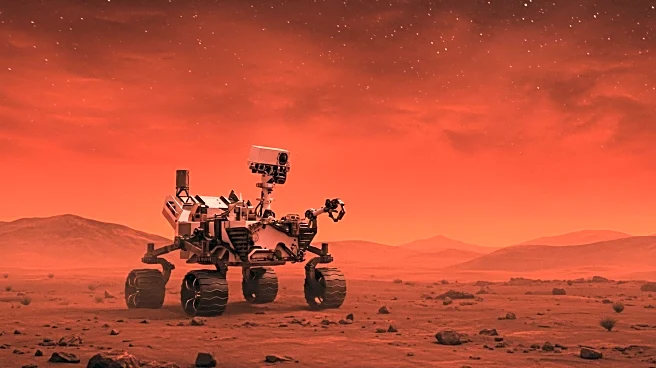What is the story about?
What's Happening?
Elon Musk has announced a potential Mars mission involving robots, specifically mentioning the possibility of a Starship flight to Mars crewed by Optimus robots in November or December of next year. Musk acknowledged that numerous factors need to align for this mission to succeed. Despite nine test flights, Starship has yet to achieve Low Earth Orbit or deliver a payload to LEO. The spacecraft has only launched with less than 20% of its designed payload capacity and has not demonstrated orbital cryogenic fuel transfer, a critical component for its mission objectives. Additionally, no Starship has successfully landed its upper stage, with each launch resulting in 'rapid unscheduled disassembly.'
Why It's Important?
Musk's ambitious Mars mission proposal highlights the ongoing challenges faced by SpaceX's Starship program. The inability to achieve key milestones such as entering Low Earth Orbit and successful payload delivery raises questions about the feasibility of future Mars missions. If successful, the mission could significantly advance robotic exploration of Mars, potentially paving the way for human colonization. However, the current technical setbacks suggest that substantial progress is needed before such missions can be realized. The outcome of these efforts could impact the future of space exploration and the role of private companies in advancing interplanetary travel.
What's Next?
SpaceX will likely continue to refine and test the Starship to overcome existing technical challenges. The company may focus on achieving successful orbital launches and payload deliveries to build confidence in the spacecraft's capabilities. Musk's timeline for a Mars mission suggests that further developments and tests are expected in the coming years. Stakeholders, including investors and space enthusiasts, will be closely monitoring SpaceX's progress and any updates regarding the Mars mission. The broader space industry may also react to these developments, potentially influencing future collaborations and investments in space exploration technologies.
Beyond the Headlines
The proposal to send robots to Mars raises ethical and logistical questions about the role of artificial intelligence in space exploration. The use of robots could reduce risks associated with human space travel, but it also necessitates advancements in AI technology to ensure mission success. Additionally, the long-term vision of establishing a self-sustaining city on Mars within 20 to 30 years presents significant challenges in terms of resource management, environmental impact, and human adaptation to extraterrestrial living conditions.
















